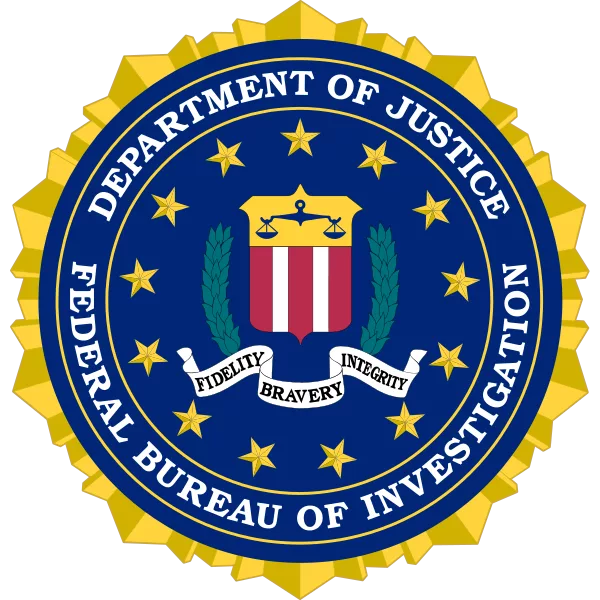
Kash Patel/Gage Skidmore from Surprise, AZ, United States of America, CC BY-SA 2.0
Kash Patel Confirmed as FBI Director: A New Era for the Bureau
On February 20, 2025, the U.S. Senate confirmed Kashyap “Kash” Patel as the new Director of the Federal Bureau of Investigation (FBI) with a narrow 51-49 vote. This decision places a prominent ally of President Donald Trump at the helm of the nation’s premier law enforcement agency. The confirmation process was marked by intense partisan debate, reflecting deep divisions over Patel’s qualifications and potential impact on the FBI’s future.
Background and Career of Kash Patel
Born on February 25, 1980, in Garden City, New York, to Indian immigrant parents, Patel’s early life was rooted in a family that valued education and public service. He pursued higher education at the University of Richmond, earning a degree in criminal justice and history in 2002. Furthering his academic credentials, Patel obtained a Juris Doctor from Pace University School of Law in 2005. His professional journey began as a public defender in Florida, where he represented clients in cases ranging from international drug trafficking to murder. This experience laid the foundation for his subsequent roles in national security and intelligence.
In 2014, Patel transitioned to the Department of Justice’s National Security Division as a trial attorney. His responsibilities included serving as a legal liaison to the Joint Special Operations Command, highlighting his involvement in critical counterterrorism operations. By 2017, Patel had joined the House Intelligence Committee as a senior counsel under Chairman Devin Nunes. During this tenure, he played a pivotal role in challenging the FBI’s investigation into alleged Russian interference in the 2016 presidential election, notably contributing to the controversial Nunes memo that accused the FBI of surveillance abuses.
Patel’s alignment with President Trump became more pronounced during his service in the National Security Council in 2019, where he was appointed as Senior Director for Counterterrorism. His rapid ascent continued when, in November 2020, he was named Chief of Staff to Acting Secretary of Defense Christopher Miller. In this capacity, Patel was instrumental in overseeing the Department of Defense’s operations during a tumultuous period marked by significant administrative transitions.
The Path to FBI Directorship
President Trump’s decision to nominate Patel as FBI Director in November 2024 was met with both support and skepticism. Proponents lauded Patel’s unwavering commitment to the administration’s agenda and his firsthand experience within the intelligence community. Critics, however, expressed concerns about his perceived partisanship and lack of extensive management experience, especially given the FBI’s complex and expansive mandate.
The Senate Judiciary Committee’s hearings in January 2025 were particularly contentious. Democratic senators questioned Patel’s past statements and actions, suggesting they might compromise the FBI’s independence. For instance, Senator Dick Durbin highlighted Patel’s previous criticisms of the FBI and raised concerns about potential politicization under his leadership. In response, Patel emphasized his respect for the bureau’s mission and pledged to uphold its integrity, stating, “The dedicated professionals of the FBI work tirelessly to protect our nation, and I am committed to leading with impartiality and honor.”
Senate Confirmation and Political Dynamics
The final Senate vote underscored the deep partisan divide surrounding Patel’s nomination. While the majority of Republican senators supported the confirmation, two notable exceptions were Senators Susan Collins of Maine and Lisa Murkowski of Alaska, who joined Democrats in opposition. Senator Collins articulated her reservations, stating, “While I respect Mr. Patel’s service, I have concerns about his ability to maintain the FBI’s essential independence from political influence.”
Senate Majority Leader Mitch McConnell, who announced earlier that he would not seek re-election in 2026, backed Patel’s nomination, reflecting the broader Republican endorsement. In contrast, Democratic leaders warned of potential risks to the bureau’s nonpartisan tradition. Senator Richard Blumenthal remarked, “Installing a partisan figure at the head of the FBI could erode public trust and undermine the rule of law.”
Implications for the FBI and Future Outlook
Patel assumes leadership of the FBI at a critical juncture. He has articulated a vision that includes restructuring the bureau to prioritize traditional crime-fighting roles over intelligence and national security functions. In his confirmation hearing, Patel stated, “While national security remains paramount, we must also refocus on combating the surge in violent crime affecting our communities.” This proposed shift has sparked debate among law enforcement professionals and policymakers about the future direction of the FBI.
Additionally, Patel’s previous critiques of the so-called “deep state” and his calls for increased transparency have raised questions about potential internal reforms. He has expressed intentions to address what he perceives as bureaucratic inertia within the agency, aiming to “streamline operations and eliminate redundancies that hinder effectiveness.” However, detractors caution that such changes, if not carefully managed, could disrupt ongoing investigations and affect morale within the bureau.
Patel’s financial entanglements have also come under scrutiny. Reports indicate that he holds significant stock in Elite Depot, the parent company of the fashion brand Shein, which has ties to China. While Patel has agreed to divest from other public companies, he intends to retain these shares, a decision that has raised ethical concerns given the FBI’s role in counterintelligence and economic espionage investigations. Ethics experts argue that such financial interests could pose conflicts, especially in matters involving companies with foreign affiliations.
As Patel steps into his role, the FBI faces numerous challenges, including addressing domestic terrorism, cyber threats, and public perceptions of its impartiality. His leadership will be pivotal in navigating these issues while maintaining the bureau’s core values of integrity and independence. The coming months will be indicative of how Patel’s tenure will shape the future of the FBI and its mission to uphold the law without fear or favor.

Conclusion
In summary, Kash Patel’s confirmation as FBI Director marks a significant moment in the agency’s history, reflecting broader national debates about partisanship, law enforcement, and the balance between security and civil liberties. His tenure will undoubtedly influence the trajectory of the FBI and its role in safeguarding American democracy.
Source: Ground News









